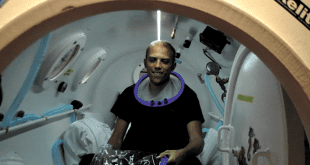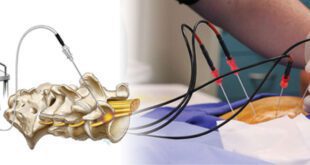Breast cancer affects both men and women worldwide at 1.4 million new cases annually. Consequently, in the United States, breast cancer is the second leading cause of death after heart disease in women. And here locally, in the state of Florida, nearly 16,000 new cases of breast cancer are diagnosed each year.
Screenings Save Lives
A small investment of your time can help save your life. Early breast cancer diagnosis is what spares lives and offers longevity. Physicians cannot stress the importance of getting regular mammograms as well as doing self-breast examinations enough. The breast cancer survival rates in the U.S. are 80-90% if caught in the first stage due to advanced care. However, the diagnosis in later stages drastically drops the survival rate to 24%. It’s essential to schedule your mammogram tests regularly, and if you feel a lump, please contact your physician immediately.
What Role Does Genetics Really Have in Breast Cancer? What About the Average Risk?
We hear so much about genetics and dense breast tissue being problematic, but most of us are confused and don’t really understand the risks involved. We caught up with Dr. Paula Lundgren a Breast Surgeon with BayCare Medical Group to find out more.
Dr. Lundgren Explained:
As a breast surgeon, my view is a bit skewed. Realize that by the time I am seeing a patient, most are already diagnosed with cancer, so we are well beyond the opportunity for screening. In the perfect world, our goal would be to be to find out who will get breast cancer and figure out who would benefit the most from early detection and or prevention.
It’s all about risk. Is a person at average or elevated risk?
We need to depend on our medical and gynecologic colleagues to perform cancer risk assessments to screen young women (in their 20s) about potential factors that will place them at elevated risk for the risk for the development of breast cancer. Consideration of genetic predisposition based on family history is imperative to be able to counsel patients to seek evaluation by a certified genetic counselor.
If we can diagnose a patient with a genetic mutation before she develops cancer, we can try to screen her better so we can catch the cancer as early as possible. Some women opt to remove their breasts (mastectomy) to decrease their risk of getting breast cancer.
There is a bit of controversy regarding the timing and duration of mammography. The different organizations making the recommendations are offering “guidelines” for breast imaging. I am a firm believer in shared decision-making in this process between the patient and physician. Age is just a number. There are many octogenarians who can run circles around me that should still be getting screening mammograms.
So, for “average” risk women, the American Society of Breast Surgeons advocated annual mammography (preferably 3D) at age 40. For those women with increased breast density, annual 3D mammography with consideration of supplemental imaging (such as ultrasonography).
For women with higher than average risk:
1. Gene mutation carriers known to predispose to breast cancer such as BRCA mutations (there are other genes that also elevate risk!).
2. Patients with significant family history of breast cancer who have not had genetic testing. So if her mother had breast cancer at age 30 and her mother’s sister had it at age 28, we should start her screening earlier then 40!
3. Patient with a history of chest or mantle radiation between ages 10 and 30
4. Women with a greater than 20% lifetime risk of breast cancer. (Calculators to assess risk are available such as Tyrer-Cuzick). I use these calculators often to assess risk especially in women who have had high risk pathology on a breast biopsy such as atypical hyperplasia or LCIS.
Dr. Paula Lundgren
Paula A. Lundgren, MD is board certified in General Surgery, specializing in breast surgery and the care of benign and malignant breast disorders.
Dr. Lundgren sees patients at the Comprehensive Breast Care Center of Tampa Bay with offices at 400 Pinellas St., Suite 200, Clearwater and 2102 Trinity Oaks Blvd., Suite 202, Trinity. Dr. Lundgren sees each patient as an individual. Upon determining someone has breast cancer, she works with the patient to chart a treatment plan specialized for that person. She is committed to getting all patients into treatment and back to their everyday lives as soon as possible.
After receiving her undergraduate degree in microbiology from the Pennsylvania State University in University Park, Dr. Lundgren earned her Doctor of Medicine from Jefferson Medical College in Philadelphia. She continued her medical education by completing a general surgery residency at Lehigh Valley Hospital in Allentown and a clinical breast fellowship at the Cleveland Clinic Foundation in Cleveland, Ohio.
BayCare Medical Group Comprehensive Breast Care Center
At the center, breast surgeons have knowledge of all facets of treatment for breast disorders, more than just the surgical aspects, and they will coordinate your care and treatment planning. The surgeons work in conjunction with board-certified radiologists, radiation oncologists, medical oncologists, plastic surgeons and patients’ primary care physicians and gynecologists to diagnose and treat breast disease. Located in the Morton Plant Mease Outpatient Center, the BayCare Medical Group Comprehensive Breast Care Center provides multiple advanced surgical and non-invasive options.
Services Offered
• Breast disease
• Surgical oncology
• Sentinel node biopsy
• Partial breast radiation
• Oncoplastic/nipple-sparing mastectomy
• Molecular subtyping
Dr. Lundgren is a member of the American Society of Breast Surgeons and the American College of Surgeons. She is affiliated with Morton Plant Hospital.
For an appointment, call (727) 253-4068 or go to DrPaulaLundgren.org.
For more information, visit BayCareMedicalGroup.org
 Central Florida Health and Wellness Magazine Health and Wellness Articles of the Villages
Central Florida Health and Wellness Magazine Health and Wellness Articles of the Villages



